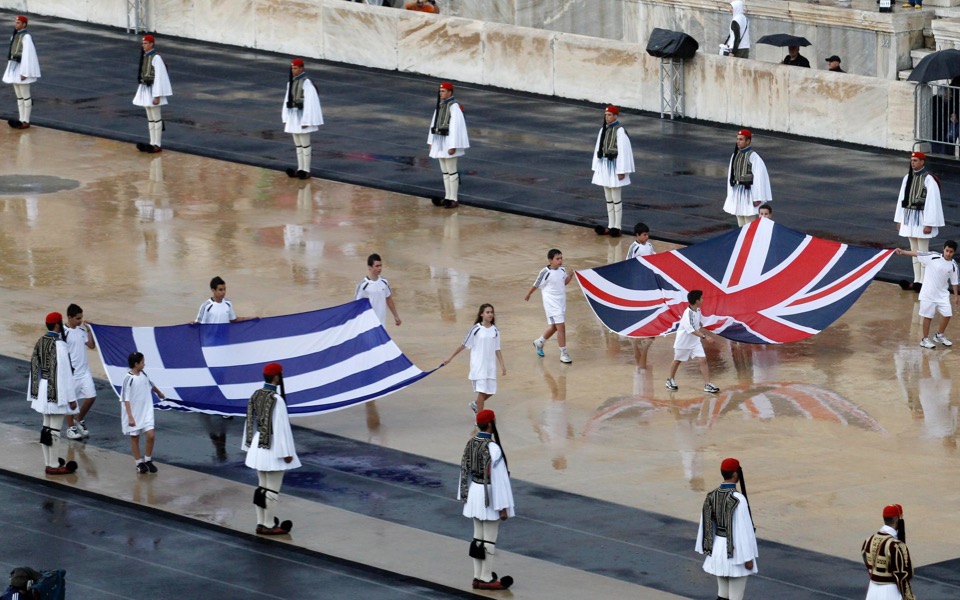The Greek-British Symposium

Greece and Britain have been tied together from the war of independence to today. Brits fought on the side of Greeks in 1821 and Britain played a decisive role in the establishment of the Greek state. The two countries were allies in both world wars. Since 1952 they have been allies in NATO and since 1981 partners in the European Union. Until recently, we could say that bilateral relations (which were heavily in Britain’s favor) had been absorbed by the transnational structures in which the two countries participated. Today, though, great change is sweeping Britain, Greece, the European Union and the world.
Britain is moving toward the EU exit whereas Greece is trying to remain in the eurozone, Europe’s hard core. With Brexit, it is certain that Britain’s relationship with the EU and with the bloc’s members will change. With regard to Greece, relations are so strong and at so many levels that even if the divorce between Britain and the EU goes through the two will continue their close cooperation. The question of how this new relationship will be shaped was the subject of a Greek-British symposium organized by the British Embassy, the British Council and the Delphi Economic Forum in Nafplio last Friday and Saturday.
The beautiful city on the Peloponnese coast is rich in references and symbols regarding the country’s history and its relations with others. The symposium’s opening took place in the Vouleftiko, a former mosque that became Greece’s first parliament. This was where Ioannis Capodistrias, the new state’s first governor, presented his reformist program. He was murdered, the program failed, and the fledgling state’s “protector powers” – Britain among them – chose a king for the Greeks and kept a close watch on the country for the greatest part of its history.
The world is different now. The United States, the last century’s superpower, appears increasingly indifferent to Europe; in Britain, economic and social insecurity (some of it in response to immigration) seem to have played a large role in the vote for Brexit, and this disenchantment exists in many other countries, too; the European Union is seeking its way between narrow national interests and the need for grand narratives of union; China is acting with ever greater self-confidence, in the political as well as the economic sphere; Russia is testing the will of the Western alliance; everywhere new dangers arise with international terrorism and cross-border crime; we are all vulnerable to technology giants, foreign powers or hackers violating our privacy, stealing our data, our savings, our identities even.
Speeches and panels at the symposium included an exploration of the changing relationship between Britain and the EU as well as between Europe and the rest of the world; how the EU is handling, or should be handling, Greece’s problems and Britain’s departure; how Greece and Britain need reforms so as to meet their challenges; how bilateral trade and cooperation in fields such as tourism and education will be affected and what opportunities may arise. A major question was how Europe will change under the pressure exerted by Donald Trump’s presidency, Brexit, an aggressive Russia, an unpredictable Turkey, and China’s grand global strategy of opening up a new Silk Road. Will the EU move toward closer integration? Will it change into a hard core surrounded by clusters of countries in various types of relationship? Will it fall apart? Indicatively, one panel brought together experts in defense and security, academia and politics to discuss how Britain and Greece could continue cooperating, through NATO and nascent European frameworks as well as on a bilateral level.
Speakers were well chosen from Greece and Britain. All of the participants were experts in their fields, able to provide each other with invaluable insights and, together, to create crosscurrents of knowledge and ideas. The symposium was able to establish where each country stands, the challenges it faces in the changing environment. It suggested solutions to current challenges but also created a ferment of new questions and ideas. The organizers can be very happy with what they achieved.
The second Greek-British Symposium is expected to be held in Britain. Whether it is in one year’s time or two, many of the questions that we ask today will have been answered, for better or for worse. New interpretations of events and new ideas on how to preserve Greek-British ties and to develop them further will be more necessary than ever.





